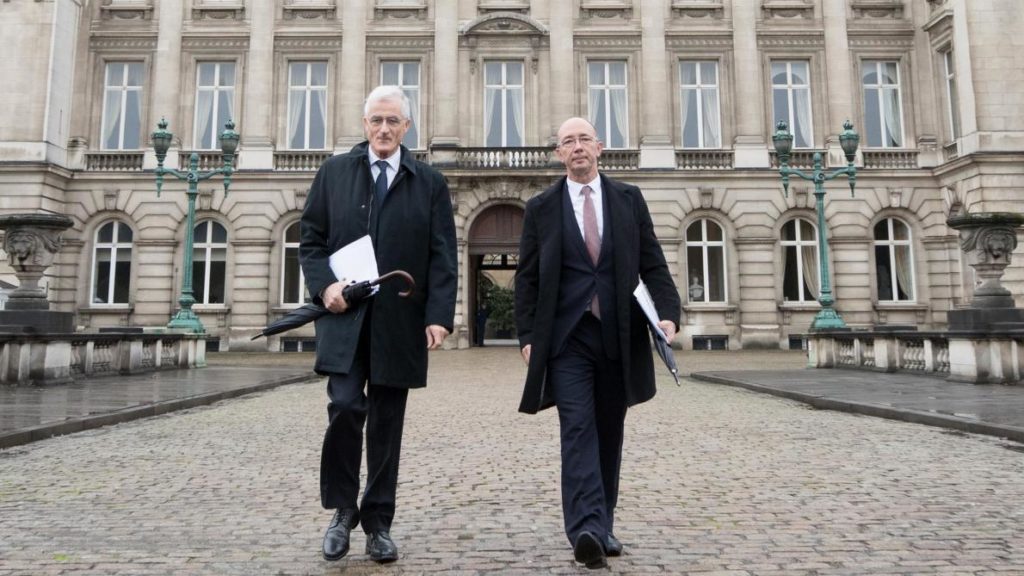Two senior politicians sent by the King to sound out the parties on plans to form a federal government decided back in November that a coalition which involves both N-VA and PS is “impossible,” one of them has revealed.
Following an initial round of exploratory talks conducted by informateurs Didier Reynders and Johan Vande Lanotte, the King handed the mission over to another two senior politicians: Rudy Demotte, former minister-president of Wallonia, and Geert Bourgeois, formerly his Flemish counterpart. Almost six months after the federal elections, they were charged with squaring the circle: how to form a government in which two of the major factions – the Flemish nationalist N-VA in Flanders and the socialist PS in Wallonia – could be represented.
The difficulty is that the PS announced even before the elections in May that they could not countenance sitting in government with N-VA. On the other side, although the parties are politically polar opposites, N-VA said it was ruling out no possibility. Yet when PS president Paul Magnette called on N-VA president Bart De Wever one Saturday evening this month, no-one on any side expected any kind of rapprochement between the two men or their parties.
The notion of a government featuring the two parties had already, in a report to the King of 4 November, been torpedoed in so many words by Demotte, with the backing of Bourgeois.
“The distance between the parties remains much too great to envisage the formation of a government,” the report from Demotte-Bourgeois reads in its conclusion. “In particular, the fundamental differences between the PS and N-VA are such as to prevent any subsequent phase constructed around the two parties. We consider the mission which we were entrusted with to be completed.”
However the problem is not merely the clash of two titans. On the Flemish side, the exclusion of N-VA brings with it the voluntary exclusion of Christian democrats CD&V and liberals Open VLD. Although the Demotte-Bourgeois report does envisage a possible coalition of “red (socialist PS and sp.a), blue (liberals MR and Open VLD), green (Ecolo and Groen) but also Christian democrats (CD&V) and humanist (cdH)” the main Flemish parties are opposed in principle to a government that does not include a majority in Flanders. With Vlaams Belang considered untouchable, the exclusion of N-VA would mean the other Flemish parties were unable to form a Flemish majority.
So what happens now?
N-VA has expressed a willingness to create a coalition with CD&V and Open VLD, which would certainly give the Flemish their majority, but who from the French-speaking side would join them? The previous government – which N-VA blew apart by walking out just over a year ago – had a single French-speaking party in the MR of Reynders and former PM Charles Michel. That rupture left a minority caretaker government in power which has now been in office for a year, now led by Sophie Wilmès (MR) – the country’s first female prime minister but able to do no more than keep a seat warm at 16 Rue de la Loi.
Once the socialists from Wallonia are ruled out, nothing much is left apart from MR. The greens are unlikely to find much if any common ground with N-VA, neither is there a great deal of love lost between cdH and Flanders.
The idea is only now being whispered in hushed tones, but ultimately the only solution could be new elections, if Belgium is not to break its own record for a period with no mandated government. On the one hand, the Flemish parties would not be keen to give Vlaams Belang another chance to increase its share of the vote as a recent poll indicated it might. On the other, none of the parties is keen to have to force the people back to the ballot-box for reasons that will inevitably be portrayed as the intransigence of one side against the other side’s placing of party above national interest.
Alan Hope
The Brussels Times

